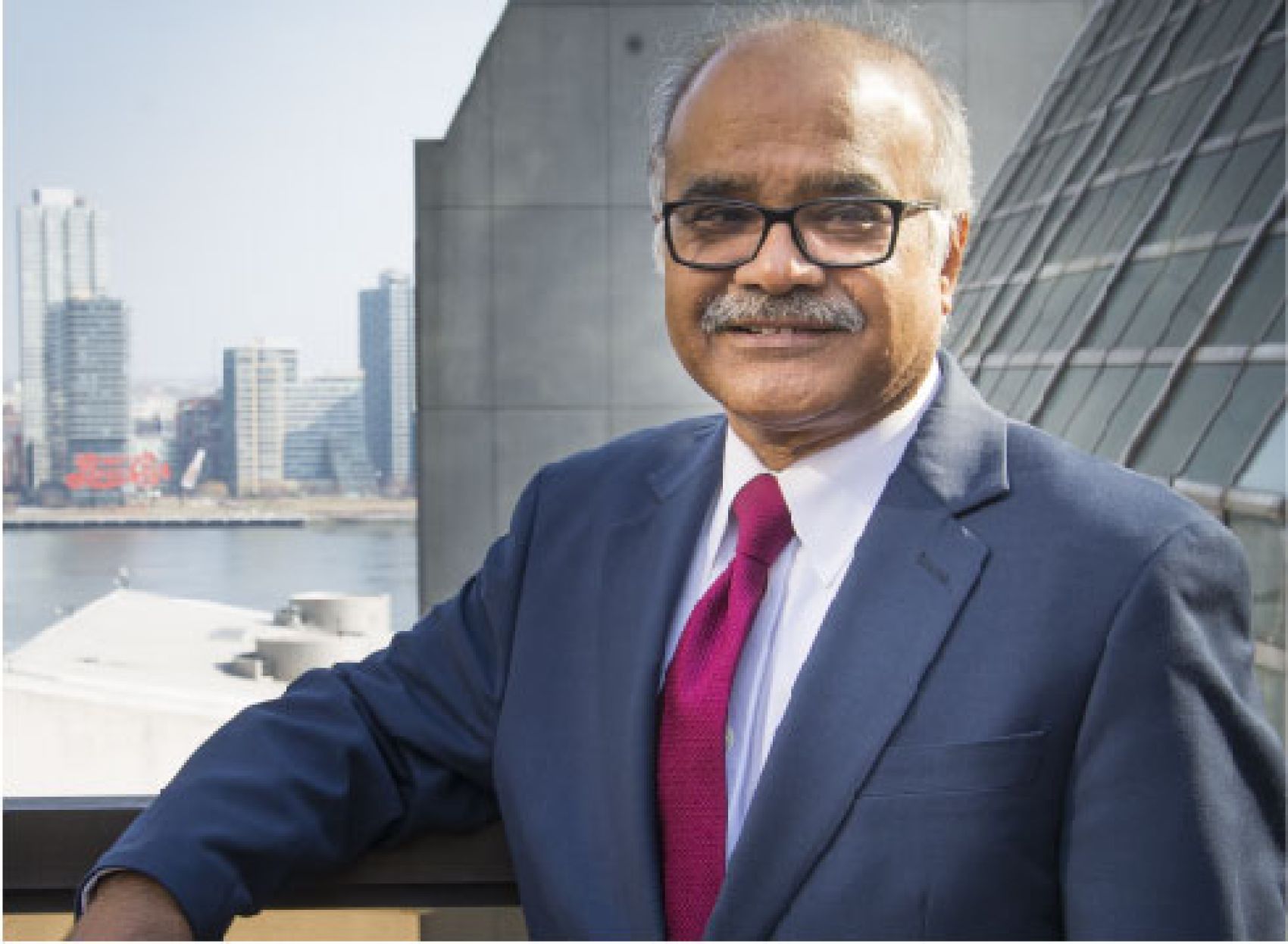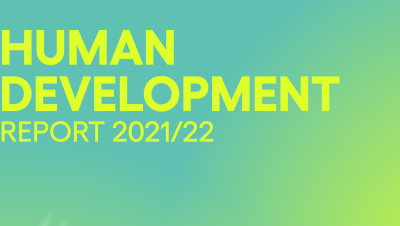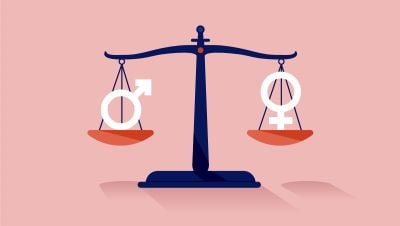Selim Jahan's, HDRO Director, keynote speech at the Annual Conference of the Human Development and Capability Association in Cape Town, South Africa .
Excellencies, Ladies and gentlemen,
Let me start with a simple statement: every human being counts and every human life is equally valuable. That universalism is at the core of the human development concept and is the driving force behind the 2030 Agenda for Sustainable Development, which asserts that no one should be left behind in the human development journey. Human development is all about human freedoms, freedom to realize the full potential of every human life, not just for a few, nor for the most, but of all lives in every corner of the world – now and in the future. Human development is for everyone.
In the context of human development for everyone, let me concentrate on five basic messages:
|
Impressive progress but with persistent deprivations
Let us recognize that the principle of universalism is one thing, translating it into practice is another. Amidst progress, deprivations exist. On the progress side, by 2015, the world had achieved some of what seemed to be daunting challenges 25 years ago. Even though the global population increased by 2 billion—from 5.3 billion in 1990 to 7.3 billion in 2015—yet, since 1990, 136,000 people have escaped extreme poverty every day. More than 2 billion gained access to improved sanitation and more than 2.6 billion people gained access to an improved source of drinking water. Between 1990 and 2015 child mortality fell by more than half—from 90 per 1,000 live births to 43 per 1,000 live births.
On the other side of the balance sheet, some deprivations are lingering (for example, poverty), some are deepening (for example, inequalities), and some are emerging (for example, climate change). One in every 3 people are still in low human development and 1.5 billion people are in multidimensional poverty. One in every nine people in the world suffers from hunger, and one in every three is malnourished. Worldwide 18,000 people die every day because of air pollution, and HIV infects 2 million people every year. Eleven children under five are dying every minute and every hour, we are losing 35 mothers during child-birth.
Inequality has become the defining issue of our time. Eight billionaires of the world own as much wealth as equal to that of the bottom half of humanity. It implies that each billionaire is worth 462 million people. Air pollution kills 6 million people every year and 38 million people die of non-communicable diseases. If climate change is not addressed today, 100 million additional people will be in extreme poverty by 2030.
In addition to these overall deprivations, basic deprivations abound among various groups of people. Three hundred and seventy million indigenous peoples represent 5 percent of the global population, but 15 percent of the global poor. Sixty-five million people – more than the population of France – are forcibly displaced, which means 24 people every minute. Fifteen million girls under 18 marry every year – that is 1 child bride in every 2 seconds. It destroys their capabilities, limits their potentials and stunts their human development. In 18 countries, women cannot work without the permission of their husbands, and in 32 countries, women face a different procedure to passports. In fact, women face a life-cycle deprivation. If the present trends continue, then East Asia would need 111 years to close just the economic gender gap, the Arab States 356 years.
Substantial barriers persist for universal human development
Specific groups in every society have been subjected to systemic deprivations. These groups are, among others, women and girls, indigenous peoples, persons with disabilities, ethnic minorities, migrants and refugees and so on. Groups of people who remain deprived may be the most difficult to reach - geographically, politically, socially and economically.
But some barriers are deeply embedded in social and political identities and relationships – e.g. blatant violence, discriminatory laws, exclusionary social norms, imbalances in political participation and unequal distributions of opportunities. Overcoming these barriers will require putting at the centre of individual and collective choices empathy, tolerance and moral commitments to global justice and sustainability. People should consider themselves part of a cohesive global whole rather than a fragmented map of rival groups and interests.
Legal and political institutions can be used or abused to perpetuate group divisions. An extreme case relates to the rights of LGBTI community in the 73 countries and 5 territories where same-sex sexual acts are illegal. In other cases, laws are discriminatory because they prevent certain groups from accessing services or opportunities.
Social norms in many countries reduce the choices and opportunities for women and girls, who are typically responsible for more than three-quarters of unpaid household care. Women in cafes or restaurants as guests may also be discouraged, and in some cases, it is taboo for women to travel in public without being accompanied by a male.
Perhaps the most direct and radical mechanisms of exclusion are intimidation and violence. Motives include consolidating political power, safeguarding the well-being of elites, controlling the distribution of resources, seizing territory and resources, and favouring ideologies based on the supremacy of one identity and set of values.
At a time when global action and collaboration are imperative, self-identities are narrowing. Social and political movements linked to identity, whether nationalist or ethnopolitical, seem to be getting stronger. Intolerance of others in all its forms—whether legal, social or coercive—is antithetical to human development and to principles of universalism.
Human development for everyone – refocusing on analytical issues
Mapping of those left out is necessary, but not enough. Perspectives on both the human development framework must be changed. Human development is a matter of not only promoting the freedoms of individuals, but also promoting the freedoms of groups or collectives. For people, most marginalized and most deprived, collective agency can be much more powerful. An individual is unlikely to achieve much alone, and effective power may be realized only through collective action.
Voice and participation, as parts of both agency freedom and the well-being freedom, are integral to human development. The ability to deliberate, participate in public debates and be agents in shaping one’s life and environment is fundamental in human development for everyone. Over the years, the main focus of the human development approach has been on the well-being freedom. But as more progress was made on the well-being front, the need arose to also emphasize the agency freedom.
Identity influences agency and autonomy. People have the liberty of choosing their identities, and it is an important one which people have the right to recognize, value and defend. Each individual deserves the options to consider the various facets of his or her identity and the choices within and among different identities. The opportunity of and the respect and recognition for such options are also a precondition for peaceful coexistence in multi-ethnic and multicultural societies.
Three issues with regard to identity have implications for universal human development. First, the space for multiple identities is more limited for people who are marginalized, so they may lack the freedom to choose the identity they value. Second, different groups compete for limited economic and political power and resources, and the deprived and marginalized lose out. Third, even worse, the insistence on a single, irrefutable identity, and the denial of reasoning and choice in selecting identities may lead to extremism and violence and thus pose a threat to human development. In most cases society’s values and norms go against the most disadvantaged. Preferences are often constructed by social traditions of privilege and subordination. But changing values and norms can transform the situation.
Freedoms are interdependent and such interdependence may sometimes be reinforcing. For example, a worker exercising the freedom to green the workspace may contribute to the freedom of his or her co-workers to have clean air. But the freedom of one may also impinge on the freedom of
others. A wealthy person has the freedom to construct a multistory house, but that may deprive his or her poor neighbour of sunlight and of an airy environment.
Limiting the freedom of others may not be the intended consequence of exercising someone’s freedom, but some actions that curb others’ freedom may be deliberate. Rich and powerful groups may try to curtail the freedom of others. This is reflected in the affluence bias of the policy matrix in many economies, in the way the legal system is built and in the way institutions work. All societies have to make trade-offs and, following reasoned debate determine the principles for settling issues, dynamically, as they achieve more development, and realize a more just society.
Human development for everyone: a four-pronged policy strategy
A four-pronged policy approach at the national level can ensure that human development reaches everyone. First, reaching out to those left out requires universal policies, but practical universalism in policy areas is difficult. For example, a country may be committed to universal health care, but the remoteness of locations and geographies of the terrains may prevent health care centres accessible to all localities. So universal human development policies need to be reoriented to reach towards those passed by.
Second, even with appropriate universal policies, specific groups of people have special needs and require specific measures. Their situations vary and policies must be sensitive to their diverse needs. For example, persons with disabilities require special measures for work opportunities, mobility and participation.
Third, human development achieved does not mean human development sustained. With shocks and vulnerabilities, human development progress may be slowed or even reversed, with implications for those who have just passed the threshold of basic human development and those yet to achieve the basics. So human development will have to be resilient.
Fourth, reaching those left out also requires empowering them, so that if policies and relevant actors fail to deliver, they can raise their voice, demand their rights and resort to mechanisms to redress.
Furthermore, as we live in a globalized world, national policies for universal human development must be complemented and supplemented by a global system which is fair and human development enriching. Global institutional reforms should encompass the broader areas of regulation of global markets, the governance of multilateral institutions and the strengthening of global civil society.
The human development framework and the 2030 Development Agenda are mutually reinforcing
The links between the human development framework, the 2030 Development Agenda and the Sustainable Development Goals (SDGs) are mutually reinforcing in three ways. First, the 2030 Agenda can see what analytical parts of the human development framework strengthen its conceptual foundation. Similarly, the human development paradigm can review the narrative of the 2030 Agenda and examine parts that can enrich it.
The human development paradigm and the 2030 Agenda for Sustainable Development are mutually reinforcing. Fulfilling the 2030 Agenda is a critical step towards enabling the people to reach their full potential. In fact, the human development approach and the 2030 Development Agenda have three common analytical links.
- First, both are anchored in the principle of universalism—the human development framework by emphasizing the enhancement of freedoms for every human being, and the 2030 Agenda by concentrating on leaving no one behind. Second, both share the same fundamental areas of focus - eradicating extreme poverty, ending hunger, reducing inequality, ensuring gender equality, and so on. Third, both have sustainability as the core principle.
- Second, the SDG indicators can look at the human development indicators and use them in assessing the SDG progress. Similarly, the human development accounting framework can review the SDG indicators and include some that currently are not there.
- Third, the Human Development Reports can be an extremely powerful advocacy instrument for the 2030 Agenda and the SDGs. And the SDGs can be a good platform for the greater visibility of the human development approach and the Human Development Report for the coming years.
Further advances are possible, changes take place and transformations happen. For example, Sub-Saharan Africa in the 2000s has achieved an additional life expectancy of 6 years – the highest in the world. South Asia, where extreme poverty is rampant, reduced extreme poverty rate from 45 percent to 15 percent just in 13 years - from 1990 to in 2013. The Americas have been declared free of measles. People are now having resounding voices, innovations and human ingenuity are there, taboo issues are now being discussed, there is more environmental awareness. But most importantly, slowly but surely, global consensus is emerging on various critical issues. Just think of the Paris Agreement on Climate Change. What once was unthinkable is now unstoppable.
In conclusion, human development for everyone is not a dream, but a reality. We can build on what we have achieved, we can explore new possibilities and we can attain what once seemed unattainable. Hopes are within our reach to realize. For the next 25 years, let us ensure a journey from deprivation to prosperity; from challenges to opportunities, from despair to hope. And in this journey, let us first reach those who are farthest behind. If we do that, at the end of the journey, we shall find that we have done it together, and when we look back, we shall see that no one has been left behind.
Thank you.


